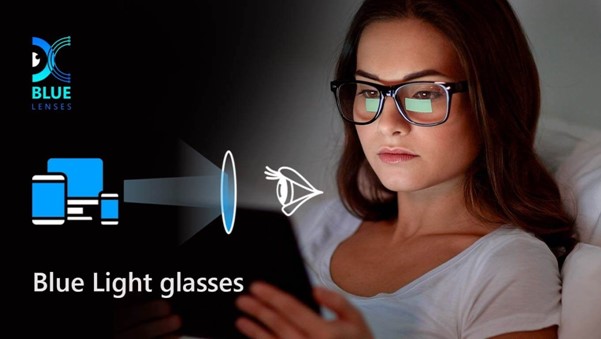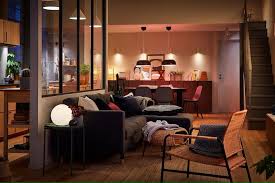Blue light glasses have been in the market for quite a while now. However, a lot of people have still not got a pair for themselves, probably because they are not aware of this latest technology or are not sure if it really works. This article tries to explain the various effects of blue light, including prevention methods.
What actually is blue light?
Without any scientific jargons, basically, this is what blue light is:
- The sunlight is not a yellow coloured wave but a spectrum of seven different colours that blend in to make the white light.
- The seven colours are the rainbow spectrum VIBGYOR- violet, indigo, blue, green, yellow, orange and red.
- These seven colours are then divided into the visible and invisible spectrum. Violet and indigo are the two colours that make up the invisible spectrum while the other five colours fall in the visible spectrum.
- As we move from the colour red to the colour violet, the wavelength decreases and the energy increases.
- Therefore, blue light possesses the highest energy in the visible spectrum.
- It is this movement of the blue waves with extremely high energy that makes them so damaging.
How does blue light affect us?
There are not just one but a multitude of reasons for why your doctor recommends a pair of reading glasses:
Retinal damage
Although the cornea of our eyes can successfully filter more than 90% of the UV rays, it fails to prevent any amount of blue waves from entering the eyes. As the blue rays penetrate through the retinal tissues, it makes changes and induces toxic reactions inside the retinal cell contents. This deteriorates and thus affects our vision.
Macular degeneration
Age-Related Macular Degeneration is a leading cause of blindness among the population of the United Kingdom. Studies reveal that intensified blue light from artificial sources like laptops, computers, TVs, smartphones and some LED bulbs can intensify the symptoms of macular degeneration.
Cataract
The eye lens is able to block some blue rays from penetrating through it and reaching the retina and consequently causing light damage in the retinal cells. As the blue waves hit the lens, they are absorbed by the proteins of the lens. This initiates the production of some substances and derivatives that add to the proteins of the lens and gradually turn it yellow and opaque. This is the reason why blue light glasses are especially recommended after cataract surgery.
Computer Eye Syndrome
When we sit in front of different screens for a prolonged time period, the excessive exposure of blue light causes Computer Eye Syndrome, also known as digital eye strain. CES is a repetitive strain injury that not only affects the vision but several other bodily functions. The symptoms include dry eyes, headache and fatigue.
Insomnia
The sleep cycle in our body is regulated by the sleep cycle called melatonin. Release of this hormone in our body signals the body for bedtime. The production of melatonin is decreased under the influence of blue waves. When we sit in front of blue waves during bedtime, it suppresses the secretion of the sleep hormone, hence, making us insomniac.
How to avoid blue light damage
- Blink more often: We tend to blink less when we are staring into computer screens. Try to make a habit of blink as much as you can as this way you will be distributing tears in your eyes evenly.
- Adjust brightness: Make sure to adjust the brightness of your computer screen with the lightning of your room. They should not be too dim or too bright as compared to each other.
- Use teardrops: Artificial teardrops are a great way to lubricate your eyes and prevent them from getting dry. You can buy a small bottle of artificial tears from a chemist and drop one or two tears whenever your eyes feel dry.
- Install a humidifier: A humidifier is used to release cold vapours in the air and make the air in the room moist. When you place one such humidifier beside your workstation, the humid air can help to keep your eyes from getting too dry.
- Wear blue light glasses: Anti-blue light lenses are the latest revolution in the eyewear industry. The coating on these glasses is able to block a significant portion of the blue waves from reaching the cornea. You can get this coating added to your regular glasses or varifocals.











